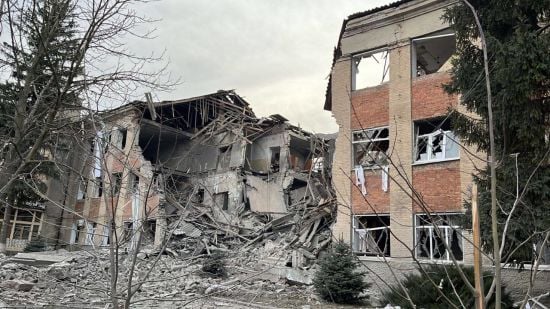2002 Submarine Scandal: French Prosecutors Accuse Former Malaysian PM Najib Razak

Table of Contents
The Scorpène Submarine Deal: A Controversial Arms Transaction
The 2002 submarine scandal centers around the controversial sale of two Scorpène-class submarines from French naval defense company DCNS (now Naval Group) to Malaysia. The deal, finalized in 2002, involved a significant financial commitment, estimated to be in the billions of dollars, making it one of the largest arms transactions in Malaysian history. The deal, however, was shrouded in secrecy from its inception, raising immediate concerns about transparency and potential corruption.
- Timeline of the deal's negotiation and completion: Negotiations began in the late 1990s, with the contract finally signed in 2002. The submarines were delivered and commissioned into the Royal Malaysian Navy in the following years.
- Initial controversies and suspicions surrounding the deal's transparency: From the outset, the lack of public disclosure surrounding the contract's specifics fueled suspicion. The exact cost, commission agreements, and the involvement of intermediaries remained largely unknown, raising red flags amongst Malaysian and international observers.
- Key figures involved in the Malaysian side of the negotiation: While the specifics are still emerging, Najib Razak, as the then-Defense Minister, played a pivotal role in the deal's negotiation and approval. Other key figures in the Malaysian government and military also played significant roles.
Accusations Against Najib Razak: Bribery and Corruption Allegations
French prosecutors have accused Najib Razak of receiving significant bribes in connection with the Scorpène submarine deal. The accusations allege that Najib Razak, during his tenure as Defense Minister, facilitated the deal in exchange for substantial personal gain. This alleged bribery constitutes a serious breach of public trust and a violation of anti-corruption laws.
- The amount of alleged bribes received: The exact amount remains under investigation, but French prosecutors have indicated that the sums involved are substantial. Reports suggest millions of dollars allegedly changed hands.
- The alleged method of payment and transfer of funds: The alleged bribes were reportedly channeled through various intermediaries and offshore accounts, employing sophisticated methods to conceal the transactions. Investigators are tracing these financial flows.
- Evidence presented by French prosecutors supporting the accusations: The French investigation has gathered significant evidence, including financial documents, witness testimonies, and communication records, supporting their accusations against Najib Razak and others.
The Role of Intermediaries and Commission Payments
The French investigation highlights the crucial role of intermediaries in facilitating the alleged bribes. Commission payments are a common, albeit often opaque, practice in international arms deals. These payments, ostensibly for facilitating the transaction, often serve as a conduit for bribery and corruption.
- Identification of key intermediaries and their alleged roles: The investigation has identified several key individuals and companies suspected of acting as intermediaries, transferring funds and concealing their origins.
- How commission payments are structured and concealed: Commission payments are often structured in complex ways, involving offshore accounts, shell companies, and convoluted financial transactions designed to obscure the true beneficiaries and the actual amount of money involved.
- The legal implications of such payments under French and Malaysian law: Both French and Malaysian laws prohibit bribery and corruption in government contracts. The alleged payments, if proven, would constitute serious offenses with significant legal repercussions.
The Ongoing Investigation and Legal Ramifications
The French investigation into the 2002 submarine scandal remains ongoing. The potential legal consequences for Najib Razak and other implicated individuals are substantial. The case underscores the complexities of international legal cooperation in prosecuting such cross-border crimes.
- Current legal proceedings and potential extraditions: Legal proceedings are underway in France, with potential for further legal action in Malaysia and other jurisdictions. Extradition requests may be filed if necessary.
- Possible penalties and sentences if found guilty: If found guilty of bribery and corruption, Najib Razak and other implicated individuals face severe penalties, including lengthy prison sentences and significant fines.
- The impact of the scandal on Malaysia's international reputation: The scandal has already damaged Malaysia's international reputation, raising concerns about transparency and governance in government procurements and international arms deals.
Wider Implications and the Fight Against Corruption
The 2002 submarine scandal is a stark reminder of the pervasive issue of corruption in international arms trading. The lack of transparency and accountability in such deals enables illicit activities to flourish. The case highlights the urgent need for increased oversight and regulation.
- The need for stricter regulations and oversight in arms sales: International cooperation is crucial to establishing stronger regulations and oversight mechanisms to prevent future scandals. Increased transparency in contract awarding processes is paramount.
- International efforts to combat corruption and bribery in government contracts: The case underscores the need for continued international efforts in combating corruption. Strengthening legal frameworks and enhancing international cooperation are vital steps.
- The long-term consequences of the scandal on Malaysia's political and economic landscape: The scandal’s long-term impact on Malaysia's political stability and economic development remains to be seen. It will likely influence future government policies regarding transparency and accountability in public procurement.
Conclusion
The 2002 submarine scandal involving Najib Razak and the controversial Scorpène-class submarine deal highlights the pervasive issue of corruption in international arms trading. French prosecutors' accusations underscore the need for greater transparency and accountability in such high-value transactions. The ongoing investigation and its potential legal ramifications hold significant implications not only for those implicated but also for global efforts to combat corruption.
Call to Action: Stay informed about the developments in this complex case by following updates on the 2002 submarine scandal and Najib Razak's legal proceedings. Understanding this significant case is crucial to comprehending the challenges in combating corruption in high-stakes international arms deals.

Featured Posts
-
 Analiz Vidnosin Putin Ta Tramp Chi Mozhliviy Obman
May 22, 2025
Analiz Vidnosin Putin Ta Tramp Chi Mozhliviy Obman
May 22, 2025 -
 Us China Trade Deal Export Activity Spikes
May 22, 2025
Us China Trade Deal Export Activity Spikes
May 22, 2025 -
 Los 5 Mejores Podcasts De Misterio Suspenso Y Terror En Ano
May 22, 2025
Los 5 Mejores Podcasts De Misterio Suspenso Y Terror En Ano
May 22, 2025 -
 Victorie Categorica Pentru Georgia In Fata Armeniei In Liga Natiunilor 6 1
May 22, 2025
Victorie Categorica Pentru Georgia In Fata Armeniei In Liga Natiunilor 6 1
May 22, 2025 -
 Kham Pha Tuyen Duong Cau Binh Duong Tay Ninh
May 22, 2025
Kham Pha Tuyen Duong Cau Binh Duong Tay Ninh
May 22, 2025
